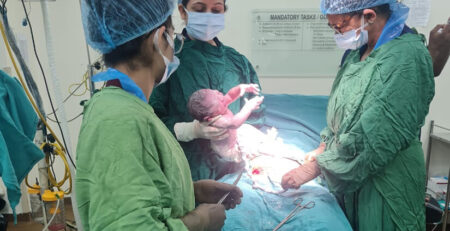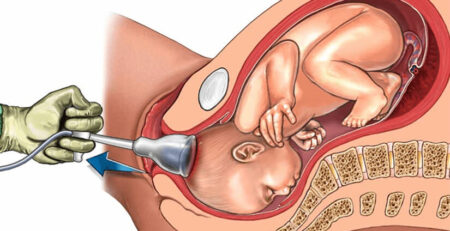Do IVF Pregnancies Have More Complications
In Vitro Fertilization (IVF) has revolutionized infertility treatment, offering hope to millions of couples. However, the question persists: do IVF pregnancies have more complications than natural pregnancies? While IVF is a highly effective treatment, understanding the associated risks and how they can be managed is essential for making informed decisions.
Let’s explore the truth about IVF pregnancy complications and how expert care can ensure healthy outcomes.
IVF and Its Role in Pregnancy
IVF is a cutting-edge infertility treatment where eggs are fertilized outside the body and implanted into the uterus. This method is often recommended for conditions such as blocked fallopian tubes, endometriosis, or low sperm count.
The goal of IVF is to help couples conceive when natural methods are unsuccessful. While it dramatically increases the chances of conception, pregnancies achieved through IVF may sometimes require closer monitoring due to unique factors involved in the process. Consulting an IVF specialist in Delhi ensures that potential complications are addressed with the highest level of care and expertise.
Do IVF Pregnancies Have More Complications?
While most IVF pregnancies result in healthy babies, some may come with increased risks compared to natural pregnancies. These risks are not solely due to the IVF process but can also depend on individual health factors, maternal age, and underlying conditions.
- Higher Risk of Multiple Pregnancies
IVF increases the chances of multiple pregnancies (twins or triplets), especially when multiple embryos are implanted.
- Potential Complications: Multiple pregnancies are associated with a higher risk of preterm birth, low birth weight, and delivery complications.
- Management: Single embryo transfer (SET) is now widely practiced to minimize this risk without reducing success rates.
- Preterm Delivery and Low Birth Weight
Studies indicate that IVF pregnancies have a slightly higher risk of premature delivery or low birth weight.
- Why It Happens: Factors like multiple pregnancies or pre-existing health conditions often play a role.
- Management: Regular prenatal checkups and a tailored care plan help manage these risks effectively.
- Gestational Diabetes and Preeclampsia
Women undergoing IVF may experience an increased likelihood of gestational diabetes or preeclampsia (high blood pressure during pregnancy).
- Causes: Hormonal changes due to fertility treatments and maternal age can contribute.
- Solution: A healthy diet, moderate exercise, and regular monitoring ensure these conditions are managed promptly.
- Placenta-Related Issues
Some IVF pregnancies may encounter issues like placenta previa (when the placenta covers the cervix) or placental abruption.
- Why It Matters: These conditions can affect delivery and fetal health.
- Management: Advanced imaging and close monitoring during pregnancy help identify and address placental issues early.

Factors Influencing IVF Pregnancy Complications
IVF pregnancy complications are not guaranteed and often stem from factors related to the individual’s overall health, age, and the specifics of the fertility treatment process. Understanding these influences can help couples prepare better and seek appropriate care from an IVF specialist in Delhi to minimize risks.
- Maternal Age
Age is one of the most significant factors affecting IVF pregnancy outcomes. Women over 35 experience a natural decline in egg quality and quantity, which can contribute to pregnancy challenges.
- Impact on Egg Quality: Advanced maternal age often results in a higher likelihood of chromosomal abnormalities in eggs, which can affect embryo quality and increase the risk of miscarriage.
- Pregnancy Risks: Older women are more susceptible to complications such as gestational diabetes, high blood pressure, and preeclampsia.
- Management Strategies: For women over 35, options such as preimplantation genetic testing (PGT) can help select the healthiest embryos for transfer, reducing risks associated with genetic abnormalities. Close monitoring during pregnancy further minimizes potential complications.
IVF provides hope for women of advanced maternal age, but it’s essential to work with an experienced IVF specialist in Delhi to ensure personalized treatment and meticulous care.
- Pre-Existing Health Conditions
Underlying health issues play a critical role in determining the success and safety of IVF pregnancies. Conditions like obesity, diabetes, thyroid disorders, or hypertension can increase the risk of complications.
- Obesity: Excess body weight can affect hormonal balance, making pregnancy maintenance more challenging. It is also linked to conditions like preeclampsia and gestational diabetes.
- Diabetes: Women with unmanaged diabetes are at a higher risk of miscarriage, preterm delivery, and birth defects. Managing blood sugar levels before and during pregnancy is crucial.
- Hypertension: High blood pressure can lead to complications such as placental abruption or restricted fetal growth.
- Thyroid Disorders: Both hypothyroidism and hyperthyroidism can impact fertility and pregnancy outcomes.
- Management Strategies:
- Comprehensive pre-IVF health evaluations.
- Working closely with healthcare providers to manage conditions through medication, diet, and lifestyle changes.
- Regular checkups during pregnancy to monitor both maternal and fetal health.
By addressing pre-existing health conditions proactively, couples can significantly reduce IVF pregnancy complications and improve their chances of a healthy outcome.
- Fertility Treatment Protocols
The IVF process involves various hormonal therapies and medications designed to stimulate ovulation, prepare the uterus, and support early pregnancy. While these protocols are highly effective, they may carry some risks that require careful management.
- Ovarian Hyperstimulation Syndrome (OHSS): This occurs when the ovaries are overstimulated by fertility medications, leading to symptoms like abdominal pain, nausea, and fluid retention. Severe cases are rare but require immediate medical attention.
- Embryo Transfer Techniques: The number and quality of embryos transferred can influence the risk of multiple pregnancies, which may result in complications like preterm birth. Single embryo transfer (SET) is often recommended to minimize these risks.
- Hormonal Effects: Medications used to prepare the uterine lining can sometimes lead to side effects like bloating, mood changes, or fatigue.
- Management Strategies:
- Personalized fertility treatment plans tailored to the individual’s health and hormonal response.
- Monitoring during ovarian stimulation to prevent OHSS.
- Adjusting medication dosages as needed to ensure safety and effectiveness.
A skilled IVF specialist in Delhi carefully designs and monitors treatment protocols, significantly reducing the risk of complications while optimizing the chances of success.
- Psychological Factors
The emotional and psychological stress of infertility and the IVF process itself can impact pregnancy outcomes. High levels of stress may affect hormone levels and overall health, indirectly contributing to complications.
- Stress Management Strategies:
- Incorporating relaxation techniques such as yoga, meditation, or counseling.
- Seeking emotional support from partners, friends, or support groups.
- Working with an IVF specialist who provides compassionate care and guidance throughout the journey.
With proactive management and expert care, these risks can be minimized significantly. Consulting a trusted IVF specialist in Delhi ensures personalized treatment and continuous monitoring, creating a safe and supportive environment for conception and pregnancy. By addressing these influencing factors, couples can approach their IVF journey with confidence and optimism.
Debunking Myths About IVF Pregnancy Complications
Several myths create unnecessary fear around IVF pregnancies. Here’s the truth:
- Myth: IVF always leads to complications.
Truth: Many IVF pregnancies are as smooth as natural ones. Complications are often linked to maternal health factors, not the IVF process itself. - Myth: IVF guarantees multiple pregnancies.
Truth: Advances like single embryo transfer (SET) have reduced the chances of multiple pregnancies significantly. - Myth: Preterm births are caused only by IVF.
Truth: Preterm delivery can occur in any pregnancy, especially with factors like advanced maternal age or multiple pregnancies, regardless of whether it’s natural or through IVF. - Myth: IVF pregnancies require constant medical intervention.
Truth: While IVF pregnancies may involve more regular monitoring, most follow a typical prenatal care routine. - Myth: IVF babies are less healthy than naturally conceived babies.
Truth: IVF babies are as healthy as those conceived naturally, provided there’s proper prenatal care. - Myth: All IVF pregnancies result in cesarean deliveries.
Truth: Many IVF pregnancies result in normal deliveries. The mode of delivery depends on the mother’s health and pregnancy progression, not IVF itself.
By dispelling these myths, couples can make informed decisions about pursuing IVF and understand that complications are not guaranteed.
How to Minimize Risks in IVF Pregnancies?
- Consult an Experienced IVF Specialist in Delhi
The right specialist can create a personalized treatment plan that minimizes risks while maximizing success rates. Their expertise ensures close monitoring and proactive care throughout the pregnancy.
- Maintain a Healthy Lifestyle
- Nutrition: Include a balanced diet rich in vitamins, minerals, and antioxidants to support reproductive health.
- Exercise: Moderate physical activity promotes overall well-being and reduces stress.
- Avoid Harmful Substances: Avoid smoking, alcohol, and excessive caffeine, as these can negatively impact pregnancy outcomes.
- Regular Prenatal Checkups
Frequent visits to your healthcare provider ensure that any potential issues are detected and managed early. Routine tests and ultrasounds help monitor fetal growth, maternal health, and placental health.
- Emotional and Psychological Support
Undergoing infertility treatment can be emotionally taxing. Joining support groups or consulting a counsellor can help manage stress, which is vital for a healthy pregnancy.
The Role of Infertility Treatment in IVF Pregnancies
Infertility treatment goes beyond conception and includes comprehensive care during pregnancy. Specialists at an IVF Centre in Delhi offer:
- Tailored Treatment Plans: These are designed to suit individual health conditions and fertility goals.
- Continuous Monitoring: Regular tests and ultrasounds track progress, ensuring both maternal and foetal health.
- Post-Pregnancy Support: After delivery, guidance on postpartum recovery and newborn care is also provided.
This holistic approach ensures that IVF pregnancies are supported at every stage, reducing complications and promoting healthy outcomes.
Take the First Step Toward a Healthy IVF Pregnancy
Are you considering IVF and worried about potential complications? With expert care and personalized guidance, these risks can be managed effectively. Dr. Rhythm Gupta, a leading IVF specialist in Delhi, has helped countless couples achieve healthy pregnancies through advanced infertility treatment and compassionate care. From conception to delivery, Dr. Gupta provides comprehensive support tailored to your unique needs. Contact her today and take the first step toward a confident and healthy IVF pregnancy.












